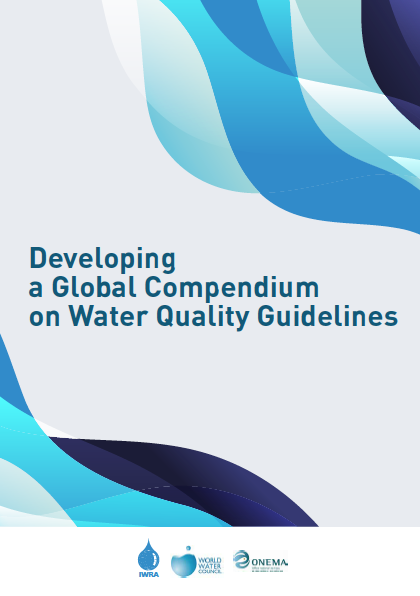IWRA PROJECTS
Water Quality Task Force
IWRA has a long history of working on the issue of water quality, a key thematic area in its current Strategic Priorities & Actions.
Why focus on Water Quality?
Water quality is a crucial consideration for efficient water resources management. Improving water quality management is seen as essential for a more balanced and multidimensional approach to the research, policy-making, governance, operations and management of water resources. In order to improve water security, water quality management must improve. This is particularly evident in situations where water quality degradation or inappropriate use of water qualities is responsible for reducing the necessary quantity of water available for various uses. Similarly, socio-economic improvement is dependent on access to sufficient water of appropriate quality for its various development paths.
Access to safe drinking water and sanitation remains a significant challenge, whilst other sectors including ecosystems, industry, energy and agriculture are also experiencing increasing pressure. Thus, it is increasingly important to use available resources more intelligently, make the most of the massive potential for wastewater reuse, and balance the water quality requirements between different uses. Our current state of knowledge regarding global water quality remains poor. Existing water quality data is urgently lacking, but is essential for the global water community to better identify specific problems as well as potential solutions.
Water Quality is also one of the main challenges to achieving the global agenda as outlined by the Sustainable Development Goals (SDGs). Launched in January 2016, the SDGs highlight the importance that water holds with its own Goal 6 to: ‘Ensure availability and sustainable management of water and sanitation for all’ and a sole target for water quality:
6.3 By 2030, improve water quality by reducing pollution, eliminating dumping and minimizing release of hazardous chemicals and materials, halving the proportion of untreated wastewater and substantially increasing recycling and safe reuse globally.
Therefore, the development of a global water quality assessment framework as well as access to timely and reliable data is urgently needed to support decision-making and management processes at a local, national and international level. Due to its diverse and complex nature, a holistic approach among different sectors and stakeholders is required to improve water quality. Management frameworks must be flexible and adaptive to account for these changing parameters in order to devise water quality policies in a more integrated and sustainable way.
Water Quality Task Force
IWRA launched the Water Quality Task Force on Water Quality (WQ) with an open call for panellists from IWRA members. IWRA sought experts from around the world to join its WQ Task Force to make a meaningful contribution to Water Quality through the WQ Project with strong support from the World Water Council. The WQ Task Force is made up of selected IWRA members, supported by its Executive Board, Secretariat, and Executive Office. The Task force contributed to a compendium on global water quality guidelines report, entitled “Global Compendium on Water Quality Guidelines: Which quality for which use?” to be published in 2018. (See below)
Today, members will have the opportunity to:
- Help scope the development of future projects related to water quality.
- Interact and create meaningful networks and relationships with other IWRA members, as well as to contribute to projects and initiatives that otherwise would be inaccessible for individual professionals in the field.
More information on the Panellists

Dr. Sisira S. Withanachchi is the co-chair of IWRA Water Quality Taskforce. He is currently working in German Toilet Organization. He was a senior researcher fellow/project manager at the University of Kassel, Germany. Dr. Withanachchi contributed to the United Nations World Water Assessment Program (WWAP) and is an expert reviewer in the Intergovernmental Panel on Climate Change. He is an expert reviewer for many reputed international journals. Dr. Withanachchi is a member of the Water Quality Task Force at the International Water Resources Association. His research and working interests are sustainable food systems, water resource management, land management, environmental governance, disaster management, risk assessment, rural development, and local governance. He is one of the United Nations SDGs Global Ambassadors for UNLEASH North and West Europe.
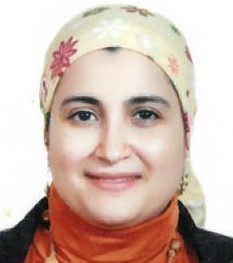
Dahlia is a water resource specialist with over 19 years of experience in water-related projects in the private sector, UN and EU-financed projects and other international organisations. She began her professional career as a water engineer and contributed to several interdisciplinary, international projects. She has worked in Germany as a Consultant for the UNFCCC. She is familiar with the water resources sector in Egypt, Sweden, Germany, and Kuwait. Currently, she serves on the IWRA Executive Board and Water Security Task Force. Her experience includes managing multi-disciplinary projects, hydrological and environmental investigations and monitoring. This includes designing and modelling water transmission and distribution networks, irrigation and treated sewerage effluent systems, urban drainage, green infrastructure and wastewater networks, and climate change adaptation in the water resources sector. She is very familiar with hydrologic and hydraulic modelling and analysis and the interpretation of water quality data, with an in-depth knowledge of current software, e.g., WaterGems, SewerGems, StormCad, HYDRUS, Global Mapper, and application of GIS in Water Resources. Having lived and worked in several countries. She can speak Arabic, English, French, and to an extent, can also use Swedish and German. She holds a Bachelor of Science in Civil Engineering from Cairo University, Egypt, and a Master of Science in Water Resources Engineering from Lund University, Sweden. Currently, she works towards completing her PhD dissertation at TU Berlin University, Germany.

Suryakanta Acharya is a Radiation Oncologist and currently working as consultant in Assam Cancer Care Foundation. His broad area of interest is health and climate change fueled by learnings from WMA, WHO, IAEA, UICC, WIPO, UNDP, UNCC, IUCN, FAO, Cornell Lab of Ornithology, and Jane Goodall Institute. He is a reviewer for policies in WMA, IUCN and IPBES. Suryakanta is the founder of PAY-W Clinic which work for indigenous people’s health, human rights, and traditional knowledge (IP). His interest in contaminants of emerging concern in water brought him to IWRA. He is a member of World Medical Association (WMA), International Water Resources Association (IWRA), and International Union for Conservation of Nature’s Commission on Environmental, Economic and Social Policy (IUCN CEESP). http://www.linkedin.com/suryaonco

Aya Al Siblani is a Lebanese University graduate student with a Master’s degree in Marine Biology and Ecology. Her thesis is about using chlorophyll-a as a phytoplankton abundance indicator. Field sampling was done throughout her internship, followed by physiochemical and biological analysis, as well as diatom observation and identification. In the last three years, she has gained experience operating spectrophotometers, chromatography, Inductively Coupled Plasma-Mass Spectrometry (ICP-MS), and Gas Chromatography Mass Spectrometry (GC-MS). Her research interests focuses on water quality and the effects of emerging contaminants on phytoplankton and the aquatic ecosystem.
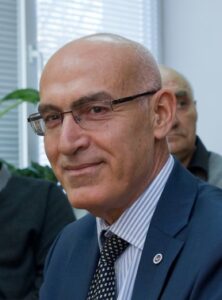
Mohammed S. Ameen holds a Ph.D. and Diploma of Imperial College, London, 1988 in structural geology and rock mechanics. He is an innovative industrial consultant, value information analyst, educator/mentor and editor. Has over 35 year’s industrial experience in Europe and the Middle East in energy, environmental and geotechnical engineering, all of which are technical areas where water resources/sustainability/quality are of paramount concern. Areas covered include but not restricted to: Conventional and unconventional hydrocarbon exploration and development; Natural fractures, and induced fractures and faults studies to assess their impact on fluids saturation, fluids pressure and permeability; In situ stresses assessment and their interaction with operations related to fluids injection and production in the subsurface, and related risks e.g., seismic hazards borehole and stability; Wellsite geologist for deep underground water wells in Iraq; Geological investigation of nuclear waste disposal sites; Major engineering projects like tunnelling, water dams, mining. Has 7 registered US patents, 28 peer reviewed papers, one published book, three edited books and 2579 citations. He is an active member of the AAPG, SPE, SPWLA, and LPS. For more information refer to the following links: LinkedIn; Research Gate; Google Scholar; Registered Patents; AAPG Editorial Board

Ifeanyi is a firm advocate of SDG 6, with a keen interest in groundwater exploration, exploitation and sustainability and data science. Currently, he works with Pee Drilling Company Nigeria Limited as a Junior Hydrogeologist. Ifeanyi holds a Bachelor of Science degree from the University of Nigeria, Nsukka in Geology. Ifeanyi has built his fieldwork and research experience working with indigenous and international organisations. He is also burdened by the need to apply geoscientific knowledge in solving today’s complex challenges posed by climate change and anthropogenic activities on groundwater resources. Ifeanyi’s research focus include: groundwater contamination and remediation, groundwater quality, groundwater resources management and governance. Ifeanyi is a member of the International Association of Hydrological Sciences (IAHS).
www.linkedin.com/in/ifeanyi-anyanwu/

Daniele Cocca is a doctoral candidate; his research activity is aimed at the areal and temporal evolution of groundwater quality (hydrochemistry) connected to geological conditions, anthropic activities and climate change in the Northern Italian Plain. He also dealt with the use of isotopes as environmental tracers in groundwater and rainfall, characterization of metal concentrations in groundwater and risks evaluation of ingestion and dermal contact of contaminated groundwater. Graduated in Applied Geological Sciences, he is Remtech Europe Ambassador, with the aim of spreading the culture of environmental remediation and member of International Association of Hydrogeologists (IAH), Italian Geological Society (SGI).

Cesar is a full professor at the Chemical and Bioprocesses Engineering Department of the University of Santiago of Chile, PhD in Chemical Engineering (2009) and with a post-doc in the Technical University of Berlin (2009-2010). His field of research is the application of biological processes to the treatment and reuse of industrial waste, with several research projects (5 FONDECYT project) in the last 8 years. He has special interest in nutrient removal including modelling of biofilm reactors and anaerobic digestion of solid and wastewater. He has 30 WoS publications in the last 5 years, 10 participations in national and international congress, 2 book chapters, 1 book and 3 patents. He currently is director of the Master’s program in Environmental Engineering of the University of Santiago of Chile and he directs 4 Ph.D. students in Engineering Sciences, Mention Process Engineering, a program of the University of Santiago de Chile.

Alper is a professor in the Department of Environmental Engineering, Dokuz Eylul University, Turkey. He has B.S. and M.Sc. degrees in Environmental Engineering from Dokuz Eylul University and received his Ph.D. degree at Clemson University in 2003. After completing his graduate studies, he worked for a water resources consulting company in the United States. Since his return to Turkey in 2004, he has been active as a full-time researcher and lecturer at Dokuz Eylul University. In 2020, he visited the University of California, Davis as a Fulbright Scholar. His research topics range from process-based environmental modelling to groundwater characterisation studies with a recent focus on remote sensing applications. He provides consultancy to the water resources sector on water quality modelling and watershed characterisation studies. Dr. Elçi also teaches various courses and supervises students at the undergraduate and graduate levels.
Environmental Manager, United States Department of Defense. Malcolm has thirty years’ experience managing the protection of drinking water quality, and the efficient use of water, on behalf of international corporations and the United States Department of Defense as a consultant and employee, and as a contractor to the United States Environmental Protection Agency. He has project experience and a familiarity with water quality and water rights regulations in China, Germany, Ireland, Canada, and Latin America.
Malcolm holds an M.S. in geology/geochemistry and a Ph.D. in international water law and possesses thorough technical hydrogeologic training, and is knowledgeable in the legal and political aspects of transboundary surface water bodies and aquifers.
https://www.linkedin.com/in/malcolm-gander-ph-d-a7921613/?locale=de_DE
Director, Sustainability Research Centre and Strategic Resource Management, Universidad del Desarrollo. He is also a Research Associate both to the Water Research Center for Agriculture and Mining (WARCAM) and the Earth Engineering Center at Columbia University, as well as Head of Waste to Energy Research & Technology – Chile at WTERT Council. In his career, he was involved as member of advisory boards to governmental institutions, consultant in environmental innovation and advisor in public affairs, referee for peer-reviewed journals and environmental projects as well as columnist in newspapers. Since 2015, Dr Godoy is a member of the Global Young Academy, aiming to empower and mobilize young scientists to address issues of importance to early career scientists. He is also a member of Nexus KAN of Future Earth organization, an international research programme for global sustainability working on Water-Energy-Food Security nexus. Since November, he is a member of the High Level Panel of Experts on Food Security and Nutrition (HLPE), UN Committee on World Food Security (CFS), FAO.

Sessinou is a recent graduate of a doctorate in law at Laval University in Canada. More specifically, his research interests include international water resources law in general and transboundary aquifer law in particular, international environmental law, transboundary cooperation and climate change. Sessinou is currently a research associate at the Canada Research Chair in Environmental Law at Laval University in Quebec City. At the same time, he is president of the NGO Recherche action en développement et environnement in Benin, West Africa, which specializes in scientific research, environmental and development education, and the resilience of local communities to climate change. He has a strong interest in the international law of shared natural resources through dynamic and innovative research on the contribution of international law in the protection of groundwater resources that are becoming increasingly critical, the contribution of global law in the articulation of national and international norms for environmental protection, transboundary cooperation, climate change and the involvement of local and indigenous communities in the governance of shared natural resources. Sessinour is from Benin and currently lives in Quebec City, Canada.

Bayan is an Assistant Professor of Chemistry at Arab American University. She has a PhD degree in Physical and Analytical Chemistry from An-Najah National University in Palestine, was born in Saudi Arabia on October 7, 1992. She graduated from Arab American University with a bachelor’s degree in Chemistry in 2014. In 2016, she graduated with a master’s degree in the field of Analytical and Physical Chemistry from An-Najah National University. She started working as a lecturer of Chemistry and Physical Chemistry in Arab American University in 2016 and then as a lecturer in Al Quds Open University in 2018, she also worked on part of her researches at Research Center Jülich in Germany during the period 2019 to 2020. After that, she started working as a Coordinator for External Opportunities Program at Tamkeen Foundation in 2020. In addition, Bayan has a good experience in Voluntary Work, such that, organisation of scientific conferences, free lessons of teaching high school and university students, as well as
Bayan participated in many scientific papers and International fellowships; her researches are mostly concentrated on adsorption related water purification, her main goal in this life is to be always an effective person in the world and hence be able to improve the situation in Palestine scientifically and economically to a high level. She has frequently attended and presented at international scientific conferences in Turkey, Korea, Palestine, Germany and Jordan, She has also been invited to several meetings and conferences.
volunteering in several organizations and initiatives that aim to make our community a better place.
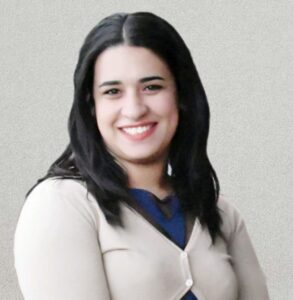
Nezha is a Research Associate, at the Faculty of Sciences El Jadida, Morocco. She is also an Advisor at the Moroccan Association of Applied Sciences and Innovation (MAASI). She holds a PhD in Geochemistry and Environment from the University of Hassan II-Casablanca (UH2C), Morocco. She holds three Masters’ degrees in Applied Geology, Sustainable Blue Growth, and Open innovation from UH2C, the University of Trieste and the University of Bari in Italy, respectively. Her area of expertise is marine geochemistry, water and sediment pollution, isotopy, geochronology, and environmental impact assessment. At MAASI, her responsibilities and duties include organizing scientific meetings and trainings for PhD students and early-career scientists, reviewing, and evaluating scientific papers. Nezha has been awarded various grants, and awards, including the prize of the best thesis, defended in Geology at UH2C in 2018.
Her research interest include: climate change issues and water management using data sciences, marine ecosystem services, human activity-natural environment interactions, coastline pollution and sustainability.
www.researchgate.net/profile/Nezha-Mejjad

Bridget is a student in applied data science at the WorldQuant University. She is a water resources engineer with fieldwork, research, project monitoring and evaluation experience focusing on environmental and water-related projects and is specifically interested in the adaptation of smart water management and reuse innovations. Currently, she works with Optimum Earth as a water engineer and previously was part of the Joadah Consult team. She has a BSc in water resources engineering from Busitema University. Bridget is a member of UIPE (Uganda Institution of Professional Engineers) and Rural Water Supply Network.
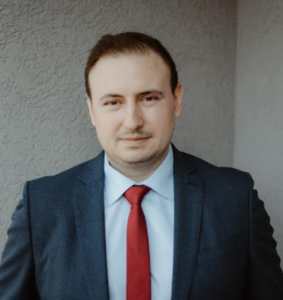
Nikola is a PhD student in Soil Physics and Land Management Group (Wageningen University) and visiting PhD student in Laboratory of Ecohydrology (Swiss Federal Institute of Technology Lausanne – EPFL). He holds a BSc degree in Civil and Environmental Engineering from Belgrade University (Serbia), and a MSc degree in Civil Engineering for Risk Mitigation from Politecnico di Milano (Italy). Since 2018 he is doing a PhD and is developing a model for simulating the pathways of (veterinary) pharmaceuticals in the environment. He also teaches hydrogeology and supervises BSc and MSc students at Wageningen University. His interests include soil-groundwater-surface water contaminant transport. He is an active member of the Dutch Contaminants of Emerging Concern partnership, particularly involved in the development of Decision support tools for risk-based prioritisation and control of contaminants of emerging concern. He is also a member of International Water Resources Association (IWRA), International Water Association (IWA), European Geosciences Union (EGU), and Association of Italian and Serbian Scientists and Scholars (AIS3).

Mohammed Tahir Ghori is a sustainability and leadership fellow with a professional background in urban development, sustainable development, and leadership with a specialization in urban water and sanitation. He has obtained his MSc in Urban Water and Sanitation with a specialization in Sanitary Engineering from IHE Delft. He has conducted two research on the environmental challenges of Afghanistan published by the Ministry of Urban Development and Land of Afghanistan in 2017 and 2018. Mr. Ghori has worked with two public ministries and the private sector. He has represented Afghanistan in UNLEASH 2019 Innovation Lab on SDGs in Shenzhen, China and he is a certified SDGs facilitator by UNLEASH organization. He is working as a mentor and technical SDGs expert with UNLEASH in a pre-accelerated program UNLEASH Plus and as a mentor with MCW Global where youths and entrepreneurs develop their sustainability projects further. Mr. Ghori is one of 30 wild card winners of the Nudge Global Impact Challenge, where he has developed a sustainability project for transferring SDGs knowledge to youths.
She is an expert in Water & Sanitation (W&S) with a wide domain of the Latin American institutional framework. She has a vast experience with more than 20 years in the areas of design, management, supervision and evaluation of projects and public policies, particularly in Transports, Buildings, Energy, and W&S. She has served as consultant for the Inter-American Development Bank [IDB], as part of the management team in charge of the W&S portfolio with Peru. She has served as Program (Global Water) Officer for Latin America for the Swiss Agency for Development and Cooperation and led a portfolio of projects mainly in Peru, Bolivia, Brazil, Mexico and Chile. She has served in technical and managerial positions for the private sector and for the Government of Peru. She is author of publications on W&S and Sustainable Infrastructure.

Aashutosh Kumar Thakur completed their Bachelor’s Degree in Civil Engineering from Tribhuvan University, Nepal in 2016 and was appointed to work for the Nepalese federal government as a Civil Engineer in 2017. He worked at the Department of Water Supply and Sewerage Management in Kathmandu for two years where he worked as project engineer on implementing drinking water supply projects in small towns (population between 5,000-40,000) across Nepal. During this time, Aashutosh also worked closely on the design, construction and commissioning of a faecal sludge treatment plant in eastern Nepal, serving two municipalities.
Currently, he works at the provincial Ministry of Water Supply, Irrigation and Energy in eastern Nepal where he oversees works of our seven District Water Supply and Sanitation Offices which altogether implement more than 1,200 community-managed drinking water supply schemes in the province. Aashutosh is also responsible for making budgetary allocations to the district offices as well as in ensuring quality control in construction of water supply infrastructure. He is also presently involved in drafting the Provincial Water Supply and Sanitation Bill which will help us streamline public water supply, sanitation and hygiene (WASH) sector in the province.
Heather Bond is a catchment planning specialist with data management, partnership building, environmental permitting, communications, fieldwork and research experience working with international organisations, government institutions and local groups. Currently, she works with UK’s Environment Agency as an Environment Planning Specialist, and previously Heather was a Project Officer with IWRA. She hold a Masters of Science degree from the University of Oxford in global water management, specialising in flood resilience measures, urban water and sanitation as well as ecosystem-based solutions to water pollution. Heather is a member of CIWEM (The Chartered Institution of Water and Environmental Management).
More information can be found at: www.linkedin.com/in/heather–bond
Developing a Global Compendium on Water Quality Guidelines
Following the 6th World Water Forum in 2012, IWRA was selected to develop a global reference of water quality guidelines for different uses. The Association then published a report on “Developing a Global Compendium on Water Quality Guidelines” in collaboration with the World Water Council. This report collects and examines examples of existing recommendations for influent water quality, as applied to various human and ecosystem uses. It provides examples and analysis of existing water quality guidelines. Building on these case studies, the report explores new perspectives, and raises pertinent questions for future work on the topic, including what an online compendium of such guidelines might look like.
This report’s primary objective is to lay the groundwork for an online compendium to improve access to examples of water quality guidelines and facilitate a better understanding of how water quality demand and supply can contribute to appropriate and economical multi-sectoral water resource management.
IWRA previously launched this report through a Water Quality session on “What Wicked Problems Face Water Quality Management over the Next 20 Years?” at KIWW 2018 with the release of its draft Executive Summary.
Specific Objectives
IWRA was the Thematic Champion for Theme 3.3 “Ensuring Water Quality from Ridge to Reef” in the Implementation Roadmap set out for the 7th World Water Forum in Daegu & Gyeongbuk, Republic of Korea in 2015, and continued as the topic lead for water quality under the Ecosystems Theme for the 8th World Water Forum in Brasilia, Brazil, in 2018. IWRA, therefore, has supported the coordination of monitoring and reporting around the 5 goals below from the 7th Forum, and specifically worked on the delivery of goal 3.3.a.
- 3.3.a – Using water smarter to contribute to the water security
This focus area aimed to develop a global reference on Water Quality for the different uses (domestic, agriculture, industry, energy, and ecosystems) with guidelines on different scales (national, regional, and international), presented with multi-disciplinary perspectives (technical, economic, institutional, legal, social, and environmental). IWRA sets specific activities to promote the smarter use of water through the provision of expert networks and tools. The network comprised a working group of experts overseeing the development of the main tool, a Compendium on Water Quality Guidelines for Different Uses. - 3.3.b – Monitoring and Reporting of Water Quality
This area of focus provided understanding and access to Water-Quality-data by utilizing the power of mobile phones. Being that the number of mobile phones will soon exceed the world’s total population, it has never before been easier to collect, analyse, and present data to support decision-makers in problem-solving water initiatives. This focus area strived to achieve this by up scaling water quality monitoring and reporting through mobile phones. - 3.3.c – Strengthening Frameworks for Governing and Managing Water Quality
This area of focus developed and used existing cooperation mechanisms and frameworks in addition to strengthening frameworks for the effective governance and management of water quality. - 3.3.d – Sustainable Wastewater Management and Reuse
- This area of focus aimed to gather and make available good wastewater treatment technologies, support policies and financial instruments, and showcase how these can be incorporated within an integrated wastewater management approach by analysing case study lessons.
- 3.3.e – Managing sources for coastal and marine water quality improvements
This area of focus made use of the Action Platform on Source to Sea Management to undertake a stock take on source-to-sea (ridge-to-reef) management to determine the aspects in need of increased attention considering past lessons, identify how the international community can be mobilized and contribute.
The Road to the 8th World Water Forum in Brasilia
With this background and expertise in water quality, IWRA acted as the Topic Lead through the Implementation Roadmap to the 8th World Water Forum that was held between March 18 and 23, 2018, in Brasilia, Brazil. In Brasilia, “Ensuring Water Quality from Ridge to Reef” has become a Topic under the Theme of “Ecosystems – Water Quality, Ecosystem Livelihoods and Biodiversity”.
A key milestone on the road to the 8th World Water Forum was indeed IWRA’s XVI World Water Congress (29 May – 3 June 2017) in Cancun, Mexico. One of the Congress’s main themes focused on “Water Quality, Wastewater and Reuse” (including implementation of SDG 6.3 with links to SDG 14.1), tackling water quality and pollution management – “from ridge to reef”, contaminants of emerging concern, water technologies and the circular economy – reduce, remove, reuse. Moreover, it collaborated with the S2S Platform that gathers approximately 25 organisations hosting a dedicated Special Session (SS 62) – Towards SDG Implementation – Ensuring Water Quality from Source to Sea. This successful session, focused on managing seawater and freshwater jointly, not separately, a crucial issue that brought together international actors working on the governance and management of water quality both from oceans and freshwater sources. As a result, this event raised awareness within the water community, including lawyers and policymakers, in order to suggest a new framework when approaching water pollution.
The host of the 8th World Water Forum, the World Water Council (established through the Cairo Declaration during a special session at IWRA’s VII World Water Congress), is supporting the IWRA’s work in response to increasing concerns on global water challenges and priorities, including water quality. The latter, is also highly relevant as a cross-cutting issue among other SDGs, equally relevant for the Theme 3.3. These include for instance, understanding that water quality from “ridge to reef” includes interaction between “green investment” in water basins and the blue economy of oceans, sea and marine resources (SDG 14), as well as the importance of water quality to protect, restore and promote freshwater ecosystems and wetlands (SDG 15).
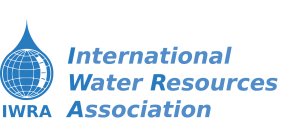
ADDRESS
Stafford Rosenbaum LLP
222 West Washington Avenue, Suite 900
Madison, Wisconsin 53701-1784
United States of America
IWRA Executive Office
22, rue de Madrid 75008
Paris, France
Phone: +33-6-44-20-57-53
Email: office@iwra.org
Editorial: editor@iwra.org

